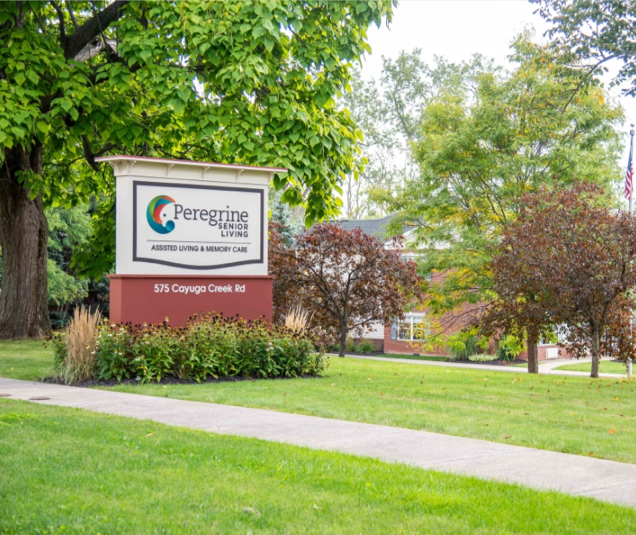Often the last thing families wish to do when a loved one is diagnosed with dementia is deal with end-of-life legal details. However, having those hard conversations sooner is imperative to ensuring that your loved one’s wishes are honoured if and when they are no longer able to make those decisions themselves due to dementia development.
Among these legal instruments is Power of Attorney (POA), which grants another individual or persons authority to make decisions (like financial or healthcare-related) on their behalf. In New York, creating a Power of Attorney for a parent with dementia requires ensuring your parent has the mental capacity to understand and provide consent before signing the document before a notary public and two witnesses.
Legal Requirements for Obtaining a POA
When it comes to POA documentation, your loved one is considered the “principal” and the individual(s) they give authority to is considered their “agent.” If you want to have POA for your loved one, that makes you the agent.
Agent Eligibility
Whether you or someone else becomes your parent’s agent, that person must meet eligibility requirements set forth by the state of New York (primarily, they must be at least 18 years old). Ideally, it’s helpful if that person lives close to your loved one so they can be present quickly in the event of an emergency where POA decisions need to be made.
It’s also essential that whoever becomes the agent is trustworthy, competent, capable, and understands the responsibilities of having POA for your parent and can avoid conflicts of interest. If desired, this responsibility can be shared between multiple agents – which has the benefit of easing the burden of responsibility on a single individual and assuring agreements are reached before decisions are taken. However, it can also result in delays.
Every family has a different dynamic, so deciding who becomes POA can be tricky. Talk with your loved one about who they trust to make decisions on their behalf and seek legal guidance if needed.
The Principal’s Mental Capacity
Any principal signing a POA must be of sound mind when signing the document. Ideally, your parent has named a POA before receiving a dementia diagnosis, but it’s possible to do so afterwards. For those with early-stage dementia, legal documents can still be signed so long as they have the capacity to understand what the document is, what it’s for, and what it approves.
Unfortunately, this does get complicated as your loved one’s dementia progresses if designating a POA is delayed. Sometimes an assessment exam is required to evaluate the mental state of an individual to ensure they can understand what they’re signing.
If your parent can’t understand the POA documentation (or potentially refuses assistance), the help of a local court to grant a conservatorship or guardianship may be required.
Signing
While the POA short form can be easily found online, it must be signed by the principal in front of a notary public and two impartial witnesses to be considered legal and valid. Once the document is signed, ensure it is stored in a secure and easily accessible location for future use.
Types of Power of Attorney (POA)
Financial Power of Attorney VS Healthcare Power of Attorney
In New York, as with many states in the US, there are explicit differences between financial and healthcare POA. Financial POA names an agent responsible for overseeing your loved one’s finances when they cannot, which can help with tasks like:
- Paying bills
- Filing taxes
- Managing investments
- Handling insurance
A healthcare POA (more commonly called a healthcare proxy in NY) names an agent responsible for overseeing your loved one’s healthcare decisions when they cannot, which can help in situations where:
- Life-sustaining treatment is needed (such as CPR or feeding tubes);
- Organ donation may be available;
- Or other critical medical choices
The two types of POAs can be kept separate or combined and have the same or different agent(s) – it all depends on your loved one’s needs and wishes.
Nondurable, Durable & Springing POA
Within each POA, three types determine when it takes effect:
- A nondurable POA takes effect immediately upon signing but becomes invalid if the principal (your parent) becomes unable to make decisions
- A durable POA remains in effect when the principal is no longer able to make decisions; this is often an ideal type of POA for a parent with dementia
- A springing POA only goes into effect when a specific named event occurs, such as the onset of an illness or disability of the principle
Understanding the different types of POA available in New York can help you make an informed decision with your loved one on the POA that is right for them.
Additional Considerations When Obtaining a POA
It’s not legally required to have a lawyer when completing a POA, however, legal help may be beneficial depending on the complexity of your loved one’s financial or healthcare situation, if you need help understanding legal language, or if there are disputes between family members regarding determining a POA.
As your loved one’s dementia progresses, it may be helpful to regularly review and update the POA documentation to ensure their needs are being met. This can often be an emotionally taxing process, especially as your parent’s dementia progresses, so it’s important to practice compassion and patience.
Supporting your loved one through a dementia diagnosis can be emotionally, physically, and legally exhausting, but you don’t have to go through it alone. Peregrine Senior Living in Cheektowaga specializes in a holistic approach to your loved one’s memory care, going beyond the basics of dementia healthcare to connect their individual and meaningful past to their present.
Contact us today to learn about comprehensive memory care and how it can benefit your loved one.












Dining at our community is about more than what’s on the plate—it’s about connection, community, and the joy of gathering together.
Our talented culinary team crafts meals that are both delicious and nutritious, offering flavors that comfort and inspire.
From themed dinners to chef demonstrations, each meal becomes an opportunity to savor the moment and celebrate life’s simple pleasures. 🍴
peregrinecheektowaga.com/ ... See MoreSee Less
0 CommentsComment on Facebook
Thank you to Sharon Holley, a true staple in the Buffalo community, for joining us and sharing your wonderful storytelling in honor of Black History Month. Your voice, your history, and your passion made a lasting impact on all of us. ... See MoreSee Less
0 CommentsComment on Facebook
A fun time was had at Fuji Grill last week for lunch! Our cook made it so much fun, and together with our activity leader Mary, they kept everyone entertained and laughing all afternoon. ... See MoreSee Less
2 CommentsComment on Facebook
Today we celebrate the caregivers—those whose quiet strength and unwavering compassion bring comfort to so many.
We see the difference caregivers make every day: holding a hand, sharing a smile, or offering reassurance when it’s needed most. 💕
Your dedication reminds us that true care goes beyond tasks—it’s an act of love, patience, and humanity.
Thank you for all you do to make the world a more compassionate place.
peregrinecheektowaga.com/ ... See MoreSee Less
0 CommentsComment on Facebook
Let the games begin! We brought the Winter Olympics indoors with mini curling, darts, and a snowball toss using real snow. Best part? Everyone won gold! 🏅 ... See MoreSee Less
0 CommentsComment on Facebook
Pictures from the past week featuring our Galentine’s Day social and Valentine’s Day dinner. The days were filled with love, friendship, great music, and delicious food! ... See MoreSee Less
1 CommentsComment on Facebook
Happy Valentine’s Day! ❤️
Love takes many forms—between partners, friends, families, and even across generations.
Today we celebrate the love that fills our community: the care shared between residents and team members, the laughter that brightens our halls, and the sense of belonging that reminds us we’re never alone.
May your day be filled with connection, warmth, and heart.
peregrinecheektowaga.com/ ... See MoreSee Less
0 CommentsComment on Facebook